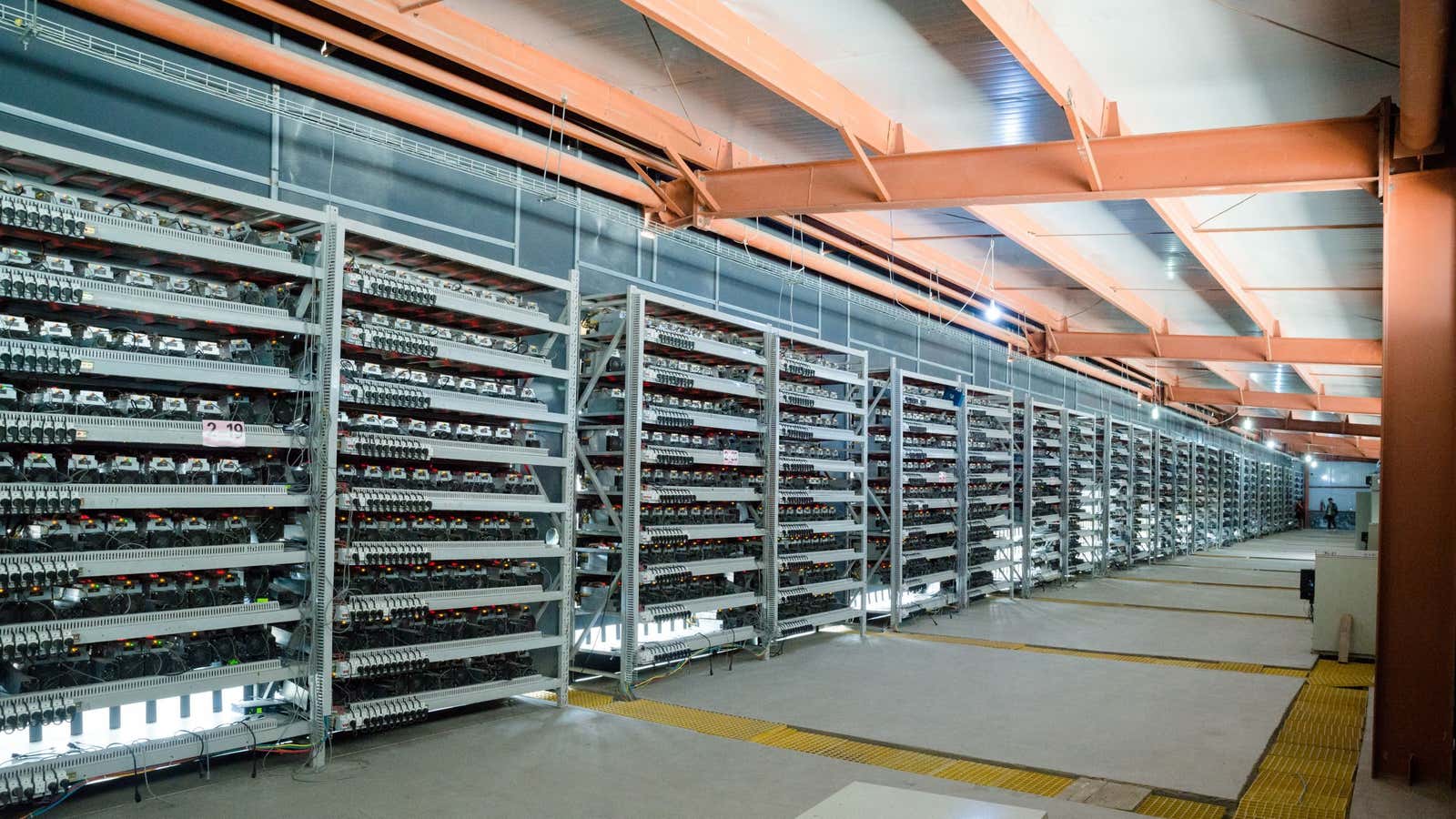Correction: An earlier version of this article, including the headline, misstated the amount that GMO announced it would spend to start mining bitcoin. It is more than $3 million, and not more than $300 million as originally stated.
GMO Internet Group, based in Tokyo, normally does incredibly boring things like registering domain names and hosting web services. But it, too, has caught the bitcoin fever, one that some people think has created a bubble in valuations.
GMO announced today that it plans to spend more than $3 million to start mining bitcoin in the first half of next year. Some $10 million is available for bitcoin miners to accumulate each day, at the current bitcoin price of around $4,600. The firm says cryptocurrencies like bitcoin will evolve into “universal currencies” that will create a global “borderless economic zone.”
GMO plans to develop its own mining chips, claiming they will operate at an unprecedented degree of efficiency. If GMO successfully introduces the chips, it would trigger an arms race within the bitcoin mining industry. The proposed chips will use 7 nanometer nodes, which would be four times more energy efficient than the current industry standard 16 nm nodes. Because bitcoin mining is a competition, once 7 nm nodes are in use, all other miners will have to upgrade to stay in the game. “It’s clearly the next generation of miners,” said Diego Guiterrez, chief executive of RSK Labs, which develops software for miners.
GMO’s business model for its mining unit resembles that of established players in the field, such as China’s Bitmain. GMO plans to operate its own mines, rent them to others, and develop its own chips that it will sell packaged as mining rigs. It plans to locate its mine in northern Europe, presumably some place with cheap, excess electric power. It says it will invest more than 10% of its non-current assets, which stood at around $32 million at the end of last year. Bitmain had no comment.
A major new bitcoin miner could shake up the industry. Miners who haven’t fully paid off the costs of their current machines could wind up with obsolete mining rigs, with little chance of recouping the cost in future. “The ones at risk are the ones still trying to recover their investment because they will be four times less productive,” Guiterrez says. He expects most major players will be able to upgrade as the technology for 7 nm chips becomes generally available to the foundries who do much of the work of fabricating the chips. “The other [mining chip makers] will surely follow and create their own 7 nm chips if they are not already doing it,” he says. “As [chip fabricators] get the new technology, everybody can access it.”
GMO’s arrival will allay fears that bitcoin mining had grown too dependent on Chinese chip designers and operators. Bitmain, for instance, operates mining pools that account for some 30% of all the processing power on the bitcoin network.
